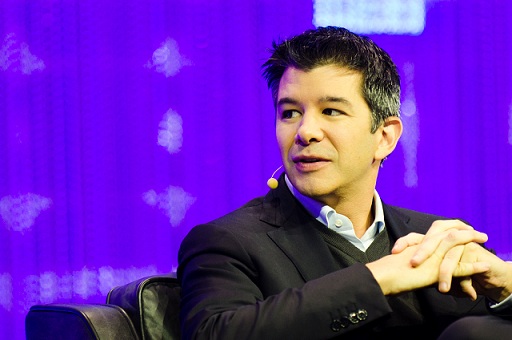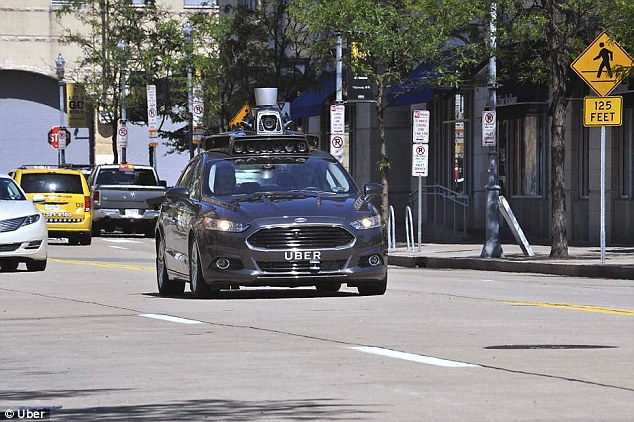Now Reading: Former Uber CEO Travis Kalanick to resign from Uber board
-
01
Former Uber CEO Travis Kalanick to resign from Uber board
Former Uber CEO Travis Kalanick to resign from Uber board

Former Uber CEO Travis Kalanick is resigning from the board of directors, cutting off ties to the ride-hailing company that he co-founded a decade ago and ran until a series of scandals contributed to his downfall.
The departure, declared Tuesday, did not come as a shock. Kalanick recently sold over $2.5 billion worth of stock in the company or 90% of his holdings.
“Uber has been a part of my life for the past 10 years. At the close of the decade, and with the company now public, it seems like the right moment for me to concentrate on my current business and philanthropic pursuits,” the 43-year-old entrepreneur has stated.
Uber, founded in San Francisco, turbocharged the gig economy, and its motorists have logged 15 billion trips since 2010. Kalanick was ousted as CEO in 2017 with the company dealing with lawsuits.
Uber under Kalanick grew with impressive speed, but similar to a number of other tech startups, it ran into trouble with a corporate “bro” culture that appeared at times to be getting out of control. Kalanick acknowledged the problem. Before his ouster as CEO, he said he had to “fundamentally change and grow up.”
In one of Uber’s biggest scandals, Kalanick was alleged of presiding over a workplace culture that permitted rampant sexual harassment.
Kalanick slammed the allegations as “abhorrent” and hired former U.S. Attorney General Eric Holder to investigate. Holder recommended decreasing Kalanick’s responsibilities.
After multiple investigations, Uber removed 20 employees accused of sexual harassment, bullying, and retaliation against those who reported. Uber recently paid $4.4 million to settle a federal investigation concerning workplace misconduct.
And then there were other troubles too during this period.
Waymo sued Uber in 2017, alleging a top manager at Google to have stolen pivotal technology from the company before departure to run Uber’s self-driving car division.
Following Kalanick’s ouster, former Expedia CEO Dara Khosrowshahi became Uber’s chief executive to repair Uber’s image and steer the company to its stock market debut in May. However, Uber’s stock floundered and dropped nearly 11% on its first day of trading as a public company. It has dropped over 30% since.
Stay Informed With the Latest & Most Important News
Previous Post
Next Post
-
 01Polestar Boss Says It’s Time To Outrun BMW M And Mercedes-AMG
01Polestar Boss Says It’s Time To Outrun BMW M And Mercedes-AMG -
 02Spy Shots: 2027 Mitsubishi Pajero Spotted in Testing Ahead of Possible U.S. Return
02Spy Shots: 2027 Mitsubishi Pajero Spotted in Testing Ahead of Possible U.S. Return -
 03Spy Photos: VW ID. Polo GTI Goes Electric with 223 HP and 280 Miles of Range
03Spy Photos: VW ID. Polo GTI Goes Electric with 223 HP and 280 Miles of Range -
 042026 Toyota Hilux EV: A Powerful Truck with Silent Torque
042026 Toyota Hilux EV: A Powerful Truck with Silent Torque -
 05The Controversial Ford Voodoo V8 That Was Killed Off Too Early
05The Controversial Ford Voodoo V8 That Was Killed Off Too Early -
![2027 Mercedes-Benz S-Class Debuts with V8 Engine [Photo Gallery]](https://speedlux.com/wp-content/uploads/2026/01/2027-Mercedes-Benz-S-Class-33-155x125.jpg) 062027 Mercedes-Benz S-Class Debuts with V8 Engine [Photo Gallery]
062027 Mercedes-Benz S-Class Debuts with V8 Engine [Photo Gallery] -
 07Hyundai Palisade’s Breakout Year Shows How Quickly the Market Can Turn
07Hyundai Palisade’s Breakout Year Shows How Quickly the Market Can Turn


![2027 Mercedes-Benz S-Class Debuts with V8 Engine [Photo Gallery]](https://speedlux.com/wp-content/uploads/2026/01/2027-Mercedes-Benz-S-Class-33-700x394.jpg)











































